In my compressed code, under advanced compilation, the compiler has changed the calling context of my function. I'm after some reasoning why and how, so I can figure out how to fix it.
Back story
I've generated my code into modules and for the past few days I've been converting the react js material ui library into a closure style provide/require syntax. I couldn't get CommonJS to play nicely with my modular approach and I couldn't get goog.module to work with the debug tool I use 'plovr'. Almost there but I'm stumbling with this.
My compiled code has sourcemaps so I can see where it's going wrong and it doesn't seem to make any sense to me.
The error throws here. Note that this is compressed code but you are seeing it mapped to the original code via sourcemaps. decomposeColor doesn't exist because this is equal to the window object.

If I type this into the console.

I then go one level up the stack and type this into the console and it's the correct object I would expect to see one level down.


Here's the same thing but what the actual code looks like compressed


Any idea what can cause the compiler to do this?
UPDATE:
After some pointers in the comments (Thanks Jan) it made sense what I should be looking for, it seems the compiler has converted from my object method
goog.provide('mui.utils.colorManipulator');
mui.utils.colorManipulator = {
//...
/**
* @this {mui.utils.colorManipulator}
*/
fade: function fade(color, amount) {
color = this._decomposeColor(color);
if (color.type === 'rgb' || color.type === 'hsl') color.type += 'a';
return this._convertColorToString(color, amount);
}
//...
}
into a function declared at the global scope.
function kc(f, a) {
f = this.nd(f);
if ("rgb" === f.type || "hsl" === f.type)
f.type += "a";
return this.md(f, a)
}
So the 'this' contexts will be different, I just need to figure out why the compiler would do that.
Update:
Here's all the code for the colorManipulator. It's pretty much ported from this this
goog.provide('mui.utils.colorManipulator')
mui.utils.colorManipulator = {
/**
* The relative brightness of any point in a colorspace, normalized to 0 for
* darkest black and 1 for lightest white. RGB colors only. Does not take
* into account alpha values.
*
* TODO:
* - Take into account alpha values.
* - Identify why there are minor discrepancies for some use cases
* (i.e. #F0F & #FFF). Note that these cases rarely occur.
*
* Formula: http://www.w3.org/TR/2008/REC-WCAG20-20081211/#relativeluminancedef
*/
_luminance(color) {
color = this._decomposeColor(color);
if (color.type.indexOf('rgb') > -1) {
let rgb = color.values.map((val) => {
val /= 255; // normalized
return val <= 0.03928 ? val / 12.92 : Math.pow((val + 0.055) / 1.055, 2.4);
});
return 0.2126 * rgb[0] + 0.7152 * rgb[1] + 0.0722 * rgb[2];
}
else {
let message = 'Calculating the relative luminance is not available for ' +
'HSL and HSLA.';
console.error(message);
return -1;
}
},
/**
* @params:
* additionalValue = An extra value that has been calculated but not included
* with the original color object, such as an alpha value.
*/
_convertColorToString(color, additonalValue) {
let str = color.type + '(' +
parseInt(color.values[0]) + ',' +
parseInt(color.values[1]) + ',' +
parseInt(color.values[2]);
if (additonalValue !== undefined) {
str += ',' + additonalValue + ')';
}
else if (color.values.length === 4) {
str += ',' + color.values[3] + ')';
}
else {
str += ')';
}
return str;
},
// Converts a color from hex format to rgb format.
_convertHexToRGB(color) {
if (color.length === 4) {
let extendedColor = '#';
for (let i = 1; i < color.length; i++) {
extendedColor += color.charAt(i) + color.charAt(i);
}
color = extendedColor;
}
let values = {
r: parseInt(color.substr(1,2), 16),
g: parseInt(color.substr(3,2), 16),
b: parseInt(color.substr(5,2), 16),
};
return 'rgb(' + values.r + ',' +
values.g + ',' +
values.b + ')';
},
// Returns the type and values of a color of any given type.
_decomposeColor(color) {
if (color.charAt(0) === '#') {
return this._decomposeColor(this._convertHexToRGB(color));
}
let marker = color.indexOf('(');
let type = color.substring(0, marker);
let values = color.substring(marker + 1, color.length - 1).split(',');
return {type: type, values: values};
},
// Set the absolute transparency of a color.
// Any existing alpha values are overwritten.
/**
* @this {mui.utils.colorManipulator}
*/
fade(color, amount) {
color = this._decomposeColor(color);
if (color.type === 'rgb' || color.type === 'hsl') color.type += 'a';
return this._convertColorToString(color, amount);
},
// Desaturates rgb and sets opacity to 0.15
lighten(color, amount) {
color = this._decomposeColor(color);
if (color.type.indexOf('hsl') > -1) {
color.values[2] += amount;
return this._decomposeColor(this._convertColorToString(color));
}
else if (color.type.indexOf('rgb') > -1) {
for (let i = 0; i < 3; i++) {
color.values[i] *= 1 + amount;
if (color.values[i] > 255) color.values[i] = 255;
}
}
if (color.type.indexOf('a') <= -1) color.type += 'a';
return this._convertColorToString(color, '0.15');
},
darken(color, amount) {
color = this._decomposeColor(color);
if (color.type.indexOf('hsl') > -1) {
color.values[2] += amount;
return this._decomposeColor(this._convertColorToString(color));
}
else if (color.type.indexOf('rgb') > -1) {
for (let i = 0; i < 3; i++) {
color.values[i] *= 1 - amount;
if (color.values[i] < 0) color.values[i] = 0;
}
}
return this._convertColorToString(color);
},
// Calculates the contrast ratio between two colors.
//
// Formula: http://www.w3.org/TR/2008/REC-WCAG20-20081211/#contrast-ratiodef
contrastRatio(background, foreground) {
let lumA = this._luminance(background);
let lumB = this._luminance(foreground);
if (lumA >= lumB) {
return ((lumA + 0.05) / (lumB + 0.05)).toFixed(2);
}
else {
return ((lumB + 0.05) / (lumA + 0.05)).toFixed(2);
}
},
/**
* Determines how readable a color combination is based on its level.
* Levels are defined from @LeaVerou:
* https://github.com/LeaVerou/contrast-ratio/blob/gh-pages/contrast-ratio.js
*/
contrastRatioLevel(background, foreground) {
let levels = {
'fail': {
range: [0, 3],
color: 'hsl(0, 100%, 40%)',
},
'aa-large': {
range: [3, 4.5],
color: 'hsl(40, 100%, 45%)',
},
'aa': {
range: [4.5, 7],
color: 'hsl(80, 60%, 45%)',
},
'aaa': {
range: [7, 22],
color: 'hsl(95, 60%, 41%)',
},
};
let ratio = this.contrastRatio(background, foreground);
for (let level in levels) {
let range = levels[level].range;
if (ratio >= range[0] && ratio <= range[1]) return level;
}
},
};